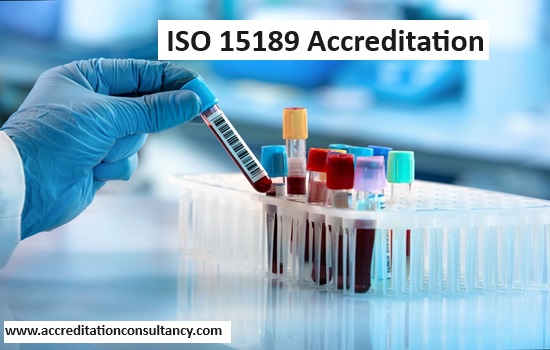Medical laboratories play an important role in healthcare delivery by performing diagnostic tests and evaluating therapy progress. ISO 15189 accreditation ensures the dependability, competence, and general quality of these laboratories by verifying their conformity to international standards.
Understand the ISO 15189 Standard
ISO 15189 Medical Laboratories - standards for Quality and Competence is an international standard that establishes the quality and competency standards for medical laboratories. It establishes a foundation for the creation of a strong quality management system (QMS) and guarantees that laboratories comply with industry and legislative requirements. Unlike ISO 9001, which establishes criteria for quality management systems in all organizations, ISO 15189 concentrates on the specific needs of medical laboratories.
Clinical biochemistry, toxicology, haematology, blood transfusion, microbiology, virology, parasitology, serology, histopathology, cytology, mortuaries, immunology, genetics, andrology, histocompatibility and immunogenetics, and point-of-care testing services are among the disciplines covered by the standard.
The Importance of ISO 15189 Accreditation
While ISO 15189 accreditation is not required in all regions, its importance should not be overlooked, particularly in the realm of public health. Accreditation acts as a badge of expertise, confirming a laboratory's commitment to providing proficient and high-quality services. It offers several essential features that help medical laboratories succeed and maintain their reputation.
Self-Assurance Regarding Abilities
An accredited laboratory's competence, impartiality, and integrity are confirmed by ISO 15189. It gives stakeholders—patients, medical professionals, and government agencies—assurance that the laboratory satisfies strict standards for competence and quality. A laboratory's ability to produce precise and dependable results is demonstrated by its accreditation, which acts as a mark of confidence.
Lowering of Risks
Labs can detect and manage operational risks by putting ISO 15189 regulations into practice. Through adherence to recommended procedures and proactive risk assessment, labs can drastically lower the probability of mistakes, equipment breakdowns, and other problems that could compromise patient safety or test result accuracy. In medical laboratories, where patient safety is paramount, proactive risk management is extremely important.
To Save the Money
The ISO 15189 accreditation encourages cost-effectiveness and efficiency in laboratory operations. Laboratories can conserve time and costs by lowering the frequency of retesting by guaranteeing the technical validity of test results. Furthermore, laboratories can optimise workflows and reduce waste by implementing efficient procedures and processes as mandated by the standard, which can eventually save a large amount of money.
Boosting Group Energy
ISO 15189 places a strong emphasis on ongoing improvement and staff competency. Labs can lower staff errors and avoidable mistakes by putting the standard's criteria into practice, which will boost team morale. The reputation and general performance of the laboratory are further improved by recognising and encouraging technical expertise among staff members, which cultivates a culture of excellence and professionalism.
Constant Enhancement
Accreditation as an ISO 15189 organisation is a continuous process, not a one-time event. A framework for measuring and tracking quality improvements over time is provided by the standard to laboratories. Laboratory operations can further improve quality, consistency, and patient care results by incorporating ISO 15189 into their core operations and launching new programmes and initiatives.
Worldwide Recognition
The internationally acknowledged standard ISO 15189 gives laboratories credit for their dedication to skill and quality. Labs accredited to ISO 15189 have their certificates and test reports acknowledged in more than 80 countries worldwide through multilateral mutual recognition agreements under the International Laboratory Accreditation Cooperation (ILAC). Because of their widespread reputation, laboratories are now able to improve medical health both domestically and internationally.


No comments yet